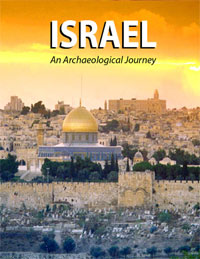
Lines of women carrying earth to the dump at Beth Shemesh, c. 1920–1933 Credit: Library of Congress, G. Eric and Edith Matson Photograph Collection
Multiple teams of British and French archaeologists received concessions from the appropriate Canadian and US governmental offices to conduct excavations at sites all over North America. They have been hiring local folks to do the manual labor, while they themselves are in charge of the strategy and management of the digs as well as the documentation and publication of the findings. Nonsense? Of course!
But imagine that something similar has been a longtime practice in the archaeology of the eastern Mediterranean and the Middle East. Ever since European and American explorers and scholars took interest in the history and cultures of ancient Greece, Egypt, Mesopotamia, and the Holy Land, the picture has been the same: a European or American person with a strong academic pedigree and/or enough money directs an archaeological project, for which they bring their countrymen to manage but rely on the local population to execute. What are the consequences, and does this matter?

Writing for the Spring 2022 issue of Biblical Archeology Review, Allison Mickel addresses this complex issue in an essay titled “Silent Labor: Dig Workers in the Middle East.” Assistant Professor of Anthropology at Lehigh University, in Bethlehem, Pennsylvania, Mickel spent five years interviewing former archaeological laborers who helped excavate two major sites in the eastern Mediterranean: Petra in Jordan and Çatalhöyük in Turkey. But her research is much more than memoirs. Mickel collected personal stories of these “silent” laborers and studied piles of historical documents to uncover how such archaeological enterprises worked, who the archaeological laborers were, how they sharpened their skills and knowledge, and what consequences all these aspects have had for local communities, cultural heritage protection, and the creation of knowledge. Her insights appeared in her 2021 book titled Why Those Who Shovel Are Silent: A History of Local Archaeological Knowledge and Labor, published by the University Press of Colorado.
Mickel has documented how season after season, large archaeological digs in the broader Middle East used hundreds of locally hired archaeological laborers to excavate archaeological sites—to dig, haul, and dump excavated material. Her study reveals that many of these nameless workers developed significant expertise. But even though such projects would have been impossible without the local workforce, those people rarely merited as much as a mention in archaeological publications and were generally excluded from the documentation, analysis, and publication of archaeological research. And although the situation has changed in the last few decades, some stereotypes persist.

The Egyptian “task master” speeding up the workers at Beth Shemesh, in c. 1920–1933
Credit: Library of Congress, G. Eric and Edith Matson Photograph Collection
“Historically, the manual and the intellectual work of archaeology have been treated as two separate phases, with one person moving the soil and another one documenting its texture and color. Combining the two would acknowledge the expert work entailed in removing, recognizing, sifting, and dumping soil. If site workers participated in documentation, they could include their perspectives and knowledge in the archaeological record and, by extension, the scholarly interpretations,” notes Mickel. Quite surprisingly, her interviews reveal that many highly skilled workers themselves tend to downplay their role in archaeological exploration. She calls it “lucrative non-knowledge.”

German excavations of the Zeus temple in Olympia, in the 1870s
Credit: Romaïdis Brothers, Patras Heidelberg historic literature – digitized , Public domain, via Wikimedia Commons
To unpack all the entangled issues involved in this topic, including why the local archaeological laborers would not admit their own expertise, read Allison Mickel’s “Silent Labor: Dig Workers in the Middle East,” published in the Spring 2022 issue of Biblical Archaeology Review.
Subscribers: Read the full article “Silent Labor: Dig Workers in the Middle East” by Allison Mickel in the Spring 2022 issue of Biblical Archaeology Review.
You can also read about an online exhibition “Unsilencing the Archives,” which portrays the role of local laborers and Egyptian foremen in excavating Tell en-Nasbeh, an archaeological site about 8 miles northwest of Jerusalem, in 1926–1935.
Read more in Bible History Daily:
Read more in the BAS Library:
Not a BAS Library or All-Access Member yet? Join today.The post Foreign Thinkers, Local Laborers appeared first on Biblical Archaeology Society.


0 Commentaires